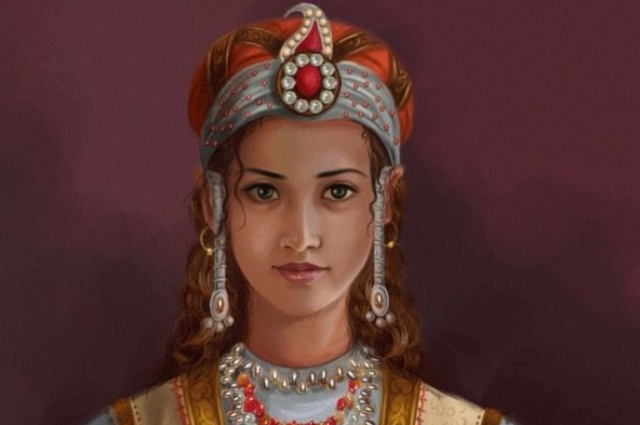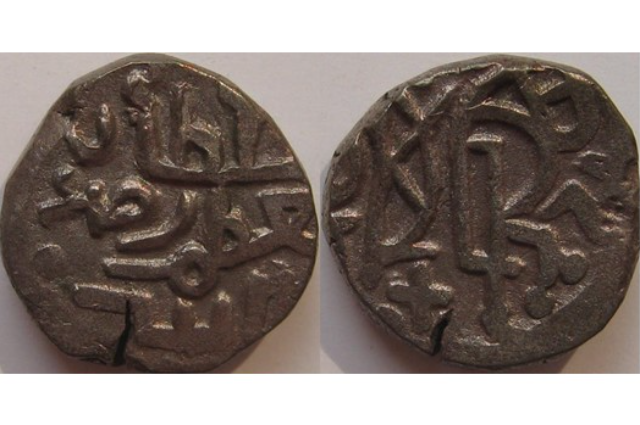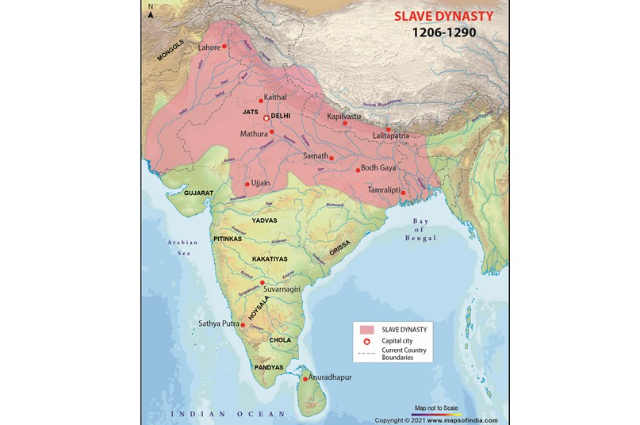
Raziya Sultan, a 12th-century Muslim ruler who was raised without gender discrimination. She ruled Delhi from 1236 to 1240. A fifth Mamluk dynasty ruler, she proudly proclaimed herself as SULTAN and she was. She ordered coins be minted with her title as “Pillar of Women, Queen of the Times, Sultan Razia, daughter of Shamsuddin Iltumish”.

Source: wikipedia
Her father Sultan Iltumish who raised her equally trained with her siblings in professional warfare and was taught military skills, she had a sound knowledge of how state governance worked. In 1236 when Sultan Iltumish was on his death bed he did not have any surviving son capable ruler so he wrote history by nominating his capable daughter Razia as "Fifth Sultan of Mamluk Dynasty".
Razia Sultan fought on the forefront and won battles seizing various territories. Her gender was never an excuse. She mastered administration, rubbing shoulders with the best Sultans Delhi had ever been ruled by.

She established a host of schools, academies, centers for research, and public libraries. The syllabus in schools and colleges included the Qur’an, the works of popular ancient philosophers, the traditions of Muhammad (PBUH), and various Hindu works in science, philosophy, astronomy, and literature. She was never accepted by nobles as they do not want to be ruled by a woman. Razia Sultan was dethroned and defeated by her half-brother on the 24th of
Rabi’-al-awwal A.H. 638 (Oct. 1240). Along with her husband Altunia, she fled from Delhi and reached Kaithal but the remaining force had abandoned them, they were captured by Hindu Jats, who robbed and killed them on the 25th of Rabi’ al-awwal A.H. 638, which corresponds to October 14, 1240. The tragic end of the first and last woman Sultan of Delhi, at the young age of 35.
Her fault is that she was raised without GENDER DISCRIMINATION, or she was more capable of her brothers, or she was SULTAN (Nobles were jealous of her as they don't want to be ruled by a woman) She wore a gender-neutral dress, fought with full bravery, even when she rose to power as Sultan, she would mount an elephant as the chief of her army in the battlefield, with her face displayed in public.
Minhaji Siraj Juzjani, the only recorded eyewitness for the reign of Sultan Raziyya bint Iltutmish, wrote the following passage:
"Sultan Raziyya – may she rest in peace – was a great sovereign, and wise, just, and beneficient, the patron of the learned, a dispenser of justice, the cherisher of her subjects, and of warlike skills, and was endowed with all the admirable attributes and qualities required of kings; but as she did not attain the destiny, in her creation, of being computed among men, of what advantage were all these excellent qualifications unto her?"

अपनी सूझबूझ से दिल्ली की शान बढ़ाई थी,
नाम था रजिया विरांगना एक नारी थी,
मल्लिकाए-हिन्द पुरुषों पर भारी थी।
उतार फेंका बुर्के,औरतों के लिबास को,
तोड़ दी झूठे रस्मों-रिवाज को,
वेश में पुरुषों की दरबार लगाती थी,
चूड़ी के बदले खनक तेग की दिखाती थी,
सुल्ताना के बदले सुल्तान कही जाती थी,
मल्लिकाए-हिन्द पुरुषों पर भारी थी।
__________
The twelfth-century when the veil was dominated by women,
The world of women was the boundary wall of palaces
Then a woman had found the Sultanate of Delhi,
He had raised the pride of Delhi with his wisdom.
The name was Razia Virangana was a woman,
Throwing off the burqa, the clothes of women,
broke false rituals and customs,
used to hold the court of men in disguise,
Instead of bangles, she used to show teg
Sultan was called instead of sultana.
Mallika e hind was heavy on men
